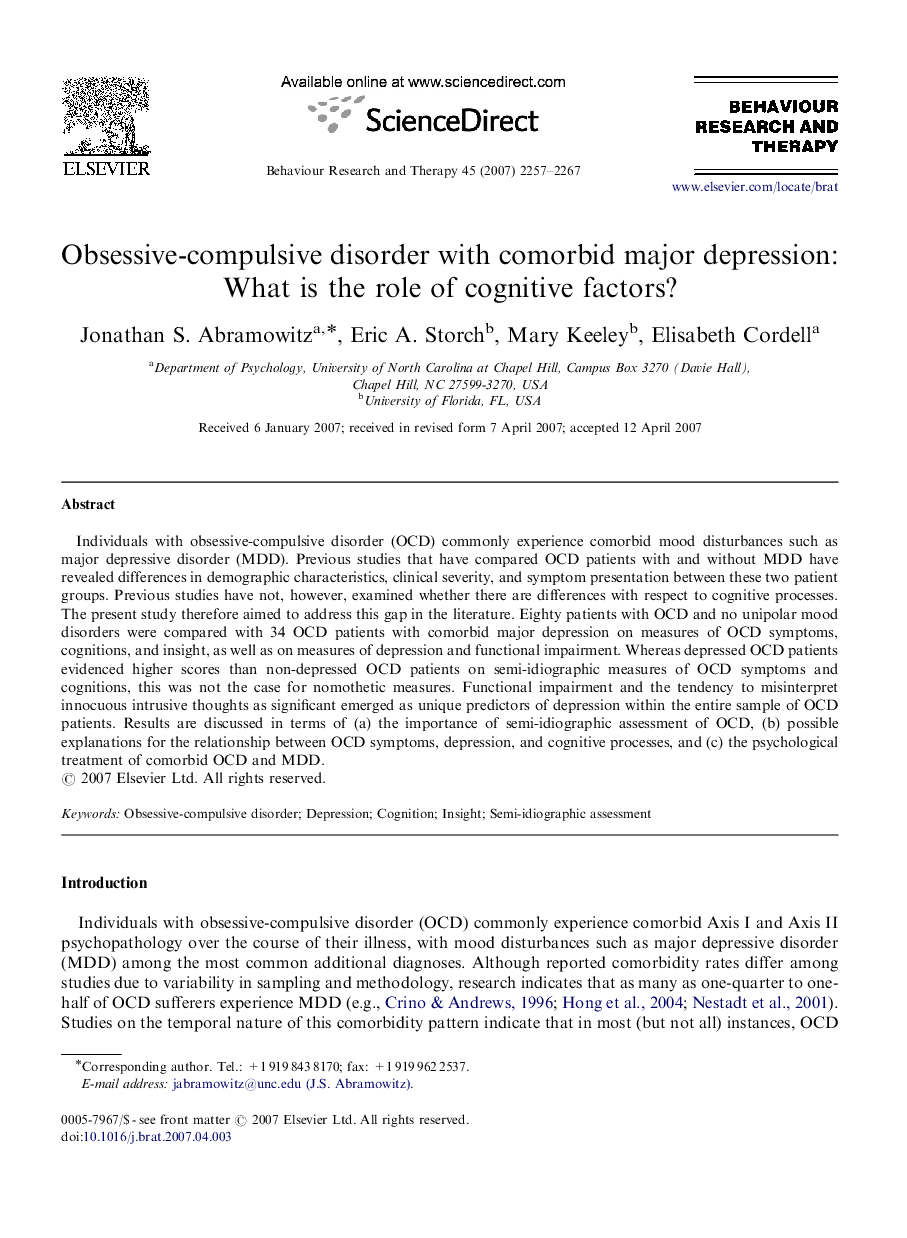| کد مقاله | کد نشریه | سال انتشار | مقاله انگلیسی | نسخه تمام متن |
|---|---|---|---|---|
| 902289 | 916148 | 2007 | 11 صفحه PDF | دانلود رایگان |

Individuals with obsessive-compulsive disorder (OCD) commonly experience comorbid mood disturbances such as major depressive disorder (MDD). Previous studies that have compared OCD patients with and without MDD have revealed differences in demographic characteristics, clinical severity, and symptom presentation between these two patient groups. Previous studies have not, however, examined whether there are differences with respect to cognitive processes. The present study therefore aimed to address this gap in the literature. Eighty patients with OCD and no unipolar mood disorders were compared with 34 OCD patients with comorbid major depression on measures of OCD symptoms, cognitions, and insight, as well as on measures of depression and functional impairment. Whereas depressed OCD patients evidenced higher scores than non-depressed OCD patients on semi-idiographic measures of OCD symptoms and cognitions, this was not the case for nomothetic measures. Functional impairment and the tendency to misinterpret innocuous intrusive thoughts as significant emerged as unique predictors of depression within the entire sample of OCD patients. Results are discussed in terms of (a) the importance of semi-idiographic assessment of OCD, (b) possible explanations for the relationship between OCD symptoms, depression, and cognitive processes, and (c) the psychological treatment of comorbid OCD and MDD.
Journal: Behaviour Research and Therapy - Volume 45, Issue 10, October 2007, Pages 2257–2267